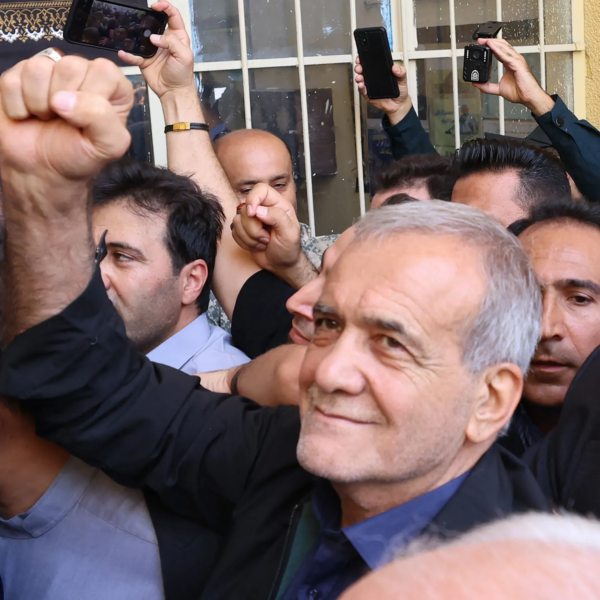Masoud Pezeshkian, a former health minister and long-time parliamentarian, was elected as the ninth president of the Islamic Republic of Iran, securing 53.6% of the vote in a runoff election. His unexpected victory against ultraconservative Saeed Jalili signals a potential shift in Iran’s political landscape, raising hopes for reformists after years of conservative dominance.
Masoud Pezeshkian,Iran‘s only reformist candidate in the latest presidential election, has risen from relative obscurity to become the ninth president of the Islamic Republic.
Pezeshkian, 69, won around 53.6 percent of the vote in a runoff election against the ultraconservative Saeed Jalili.
In thefirst round of Iran’s snap electionson June 28, Pezeshkian led the polls against three other conservative figures, stunning supporters and rivals alike.
Pezeshkian’s victory has raised the hopes of Iran’s reformists after years of dominance by the conservative and ultraconservative camps.
He will replace late ultraconservative presidentEbrahim Raisiwho died in a May helicopter crash.
“The difficult path ahead will not be smooth except with your companionship, empathy, and trust. I extend my hand to you,” Pezeshkian said in a post on X, after on Tuesday saying he would “extend the hand of friendship to everyone” if he won.
مردم عزیز ایران انتخابات تمام شد و این تازه آغاز همراهی ماست. مسیر دشوار پیش رو جز با همراهی، همدلی و اعتماد شما هموار نخواهد شد دستم را به سوی شما دراز میکنم و به شرافتم سوگند میخورم که در این راه تنهایتان نخواهم گذاشت. تنهایم نگذارید.
— Masoud Pezeshkian (@drpezeshkian)July 6, 2024
In the lead-up to the elections, Iran’s main reformist coalition threw its weight behind Pezeshkian, with former presidents Mohammad Khatami and the moderateHassan Rouhanideclaring support for his bid.
Pezeshkian takes over the presidency amid heightened regional tensions over theGaza war,a dispute with the West over Iran’s nuclear program and domestic discontent over the state of Iran’s sanctions-hit economy.
‘Out of isolation’
The outspoken heart surgeon had publicly criticized the Raisi government over its handling of the death in custody of Iranian Kurd Mahsa Amini, who had been arrested for allegedly violating the Islamic Republic’s strict dress code forwomen.
In a post on Twitter, now known as X, at the time, he called on the authorities to “set up an investigation team” to look into the circumstances behind her death.
In recent campaigning, he has maintained his stance, criticizing the enforcement of mandatory hijab laws which require women to cover their head and neck in public since shortly after the 1979 Islamic revolution.
“We oppose any violent and inhumane behavior towards anyone, notably our sisters and daughters, and we will not allow these actions to happen,” he said.
He also vowed to ease internet restrictions and to involve ethnic minorities in his government.
Pezeshkian was born on September 29, 1954, to an Iranian father of Turkic origin and a Kurdish mother in the city of Mahabad in the northwestern province of WestAzerbaijan.The Turkic peoples are a collectionof diverse ethnic groups of West, Central, East, and North Asia as well as parts of Europe,who speak Turkic languages. Peoples who are classified as Turkic include the Altai, Azerbaijanis, Balkar, Bashkir, Dolgan, Karachay, Karakalpaks, Kazakhs, Khakass, Kipchak, Kumyk, Kyrgyz, Nogay, Shor, Tatars, Tofalar, Turkmen, Turks, Tyvans (Tuvans), Uighurs, and Uzbeks.
He has represented Tabriz ( the capital city of East Azerbaijan Province, in northwestern Iran) in Iran’s parliament since 2008, served as health minister in Khatami’s government, and supervised sending medical teams to the war front during the Iran-Iraq conflict between 1980 and 1988.
In 1993, Pezeshkian lost his wife and one of his children in a car accident. He never remarried and raised his remaining three children — two sons and a daughter — alone.
Pezeshkian has called for reviving the accord — which sought to curb Tehran’s nuclear activity in return for sanctions relief — to get Iran “out of isolation”.
“If we manage to lift the sanctions, people will have an easier life while the continuation of sanctions means making people’s lives miserable,” he said during a televised interview.
Pezeshkian will be tasked with applying state policy outlined by the supreme leaderAyatollah Ali Khamenei,who wields ultimate authority in the country.
While his election is expected to have little impact on the Islamic Republic’s policies, the president will be closely involved in selecting the successor to Khamenei, Iran’s 85-year-old Supreme Leader who calls all the shots on top matters of state
France 24


Leave a Reply
You must belogged into post a comment.